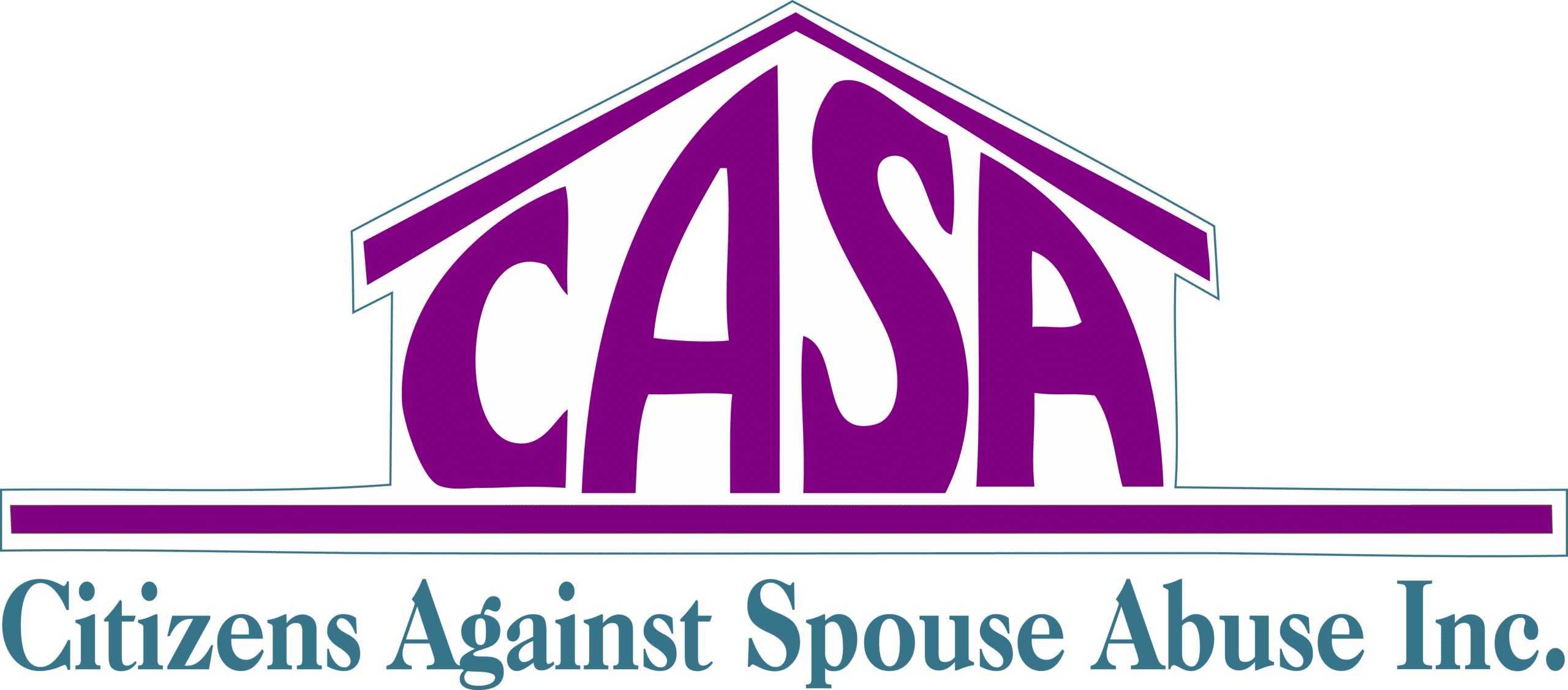Domestic violence is a pattern of abusive and coercive behaviors in any relationship that is used by one partner to gain or maintain control over another intimate partner. Types of abuse may include physical, emotional/verbal, sexual, financial, and/or stalking.
Physical Abuse is the use of physical force against another person in a way that ends up injuring the person or puts the person at risk of being injured. You may be experiencing physical abuse if your partner has or repeatedly:
- Pulls your hair, punches, slaps, kicks, bites, chokes, or smothers you.
- Forbids or prevents you from eating or sleeping.
- Uses weapons against you.
- Prevents you from taking medication, seeking medical attention or contacting law enforcement.
- Harms your children or pets.
- Drives recklessly with you in the car.
- Forces you to use drugs or alcohol.
- Traps you in your home.
- Throws objects at you.
Emotional and Verbal Abuse is non-physical behavior that belittles another person and can include insults, verbal threats, or other tactics that make the victim feel threatened, inferior, ashamed or degraded. You may be in an emotionally abusive relationship if your partner:
- Calls you names, insults you, or constantly criticizes you.
- Acts jealous or doesn’t trust you.
- Isolates you from friends and family.
- Monitors your activities with or without your knowledge.
- Controls what you wear or how you look.
- Humiliates you in front of others.
- Gaslights you by questioning your recollection of facts, events, or sources; trivializes your needs or feelings; or denies previous statements they made.
- Threatens you, your family, or your pets.
- Damages your belongings.
- Blames you for their abusive behavior.
- Accuses you of cheating.
- Cheats on you to intentionally hurt you.
Sexual Abuse within a relationship is a pattern of behaviors to manipulate, control, or influence an intimate partner sexually to have power over that person. It is any unwanted or non-consensual sexual contact with you by your romantic or sexual partner. You may be experiencing sexual abuse in your relationship if your partner:
- Uses fear, shame, guilt, threats, manipulation, or intimidation to force you to have sex.
- Forces you to dress in a sexual way.
- Uses sex as a tool to exhibit power and/or control.
- Takes out anger or frustration with you during sex.
- Forces you to have sex when you have not given consent.
- Holds you down or restrains you during sex.
- Forces or coerces you to do something you are not comfortable with.
- Demands sex when you are tired, sick, or injured.
- Ignores your feelings when it comes to sex.
- Commits marital rape or drug-facilitated sexual assault.
Financial Abuse occurs when your partner controls your ability to acquire, use, or maintain financial resources. Those victimized financially may be prevented from working. You may be in a financially abusive relationship if your partner:
- Tries to control your access to money you have earned or saved.
- Uses or takes your money, credit cards, or assets for their personal benefit without your permission.
- Ruins your credit history by running up limits and then not paying bills.
- Claims to make payments or pay bills in your name but not following through.
- Borrows money or makes charges without repaying it.
- Demands that you turn over your paycheck, passwords, and credit cards.
- Expects you to pay for their bills.
- Requires you to bail them out of financial situations.
- Pressures you to quit your job.
- Tells you where you can and cannot work.
- Sabotages you job or harasses you at work.
- Prevents you from going to work by hiding your keys or damaging your vehicle.
Stalking is a form of harassment comprised of repeated, persistent following or monitoring of a person with the intent of harming or creating anxiety or fear of harm to the person being followed. You may be experiencing stalking if someone:
- Follows you or shows up wherever you are.
- Sends unwanted gifts, letters, or messages.
- Damages you home, car, or other property.
- Monitors phone calls or computer usage.
- Uses technology to monitor or track you.
- Threatens to disclose intimate or embarrassing images of you (i.e. revenge porn).
- Drives by or hangs out at or near your home, school, or work.
- Posts information or spreads rumors about you on the internet, in a public place, or by word of mouth.
If you or someone you know may be in an abusive relationship, please contact CASA at info@casa-sedalia.org to learn more about domestic violence and the resources available.

